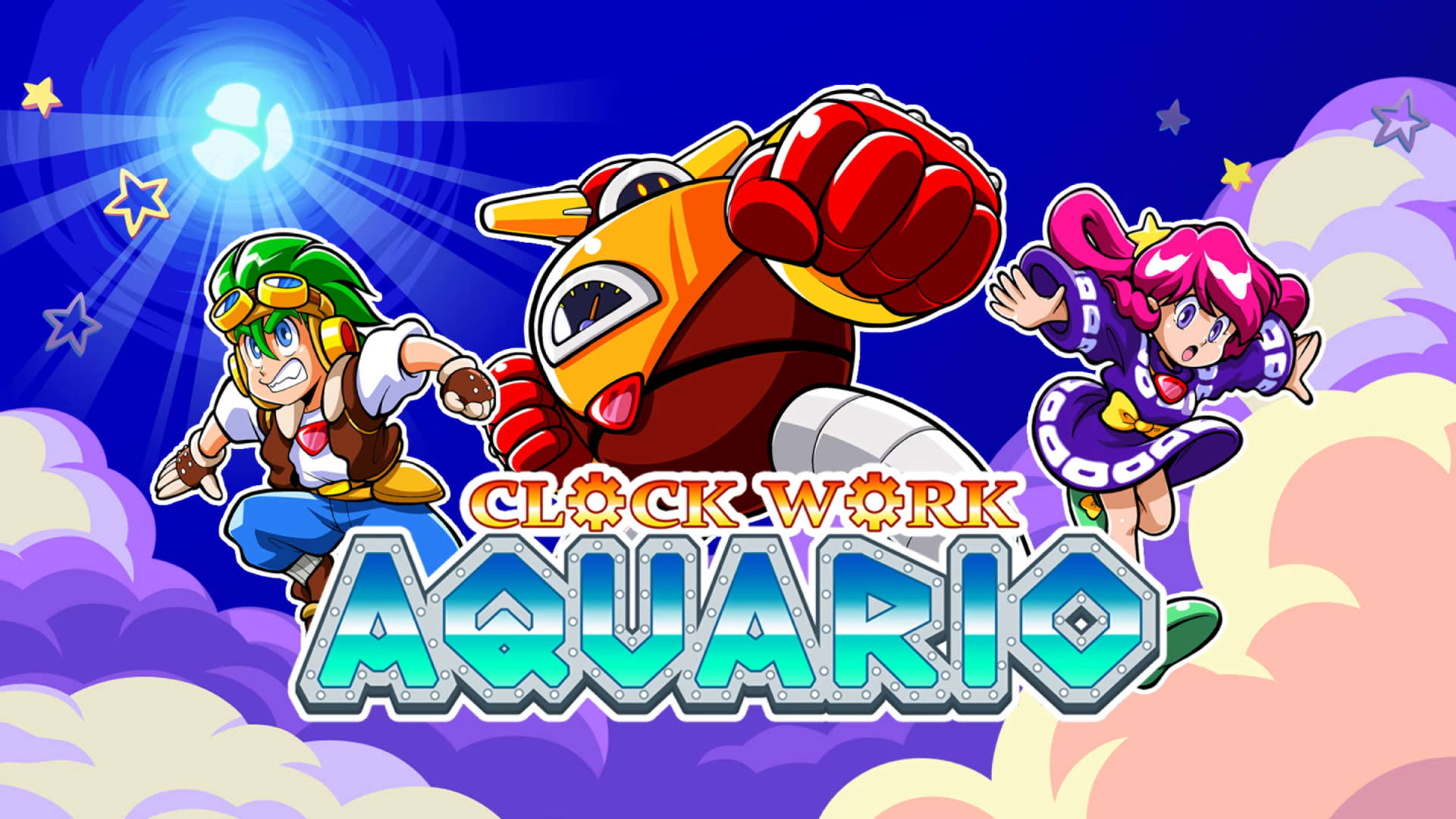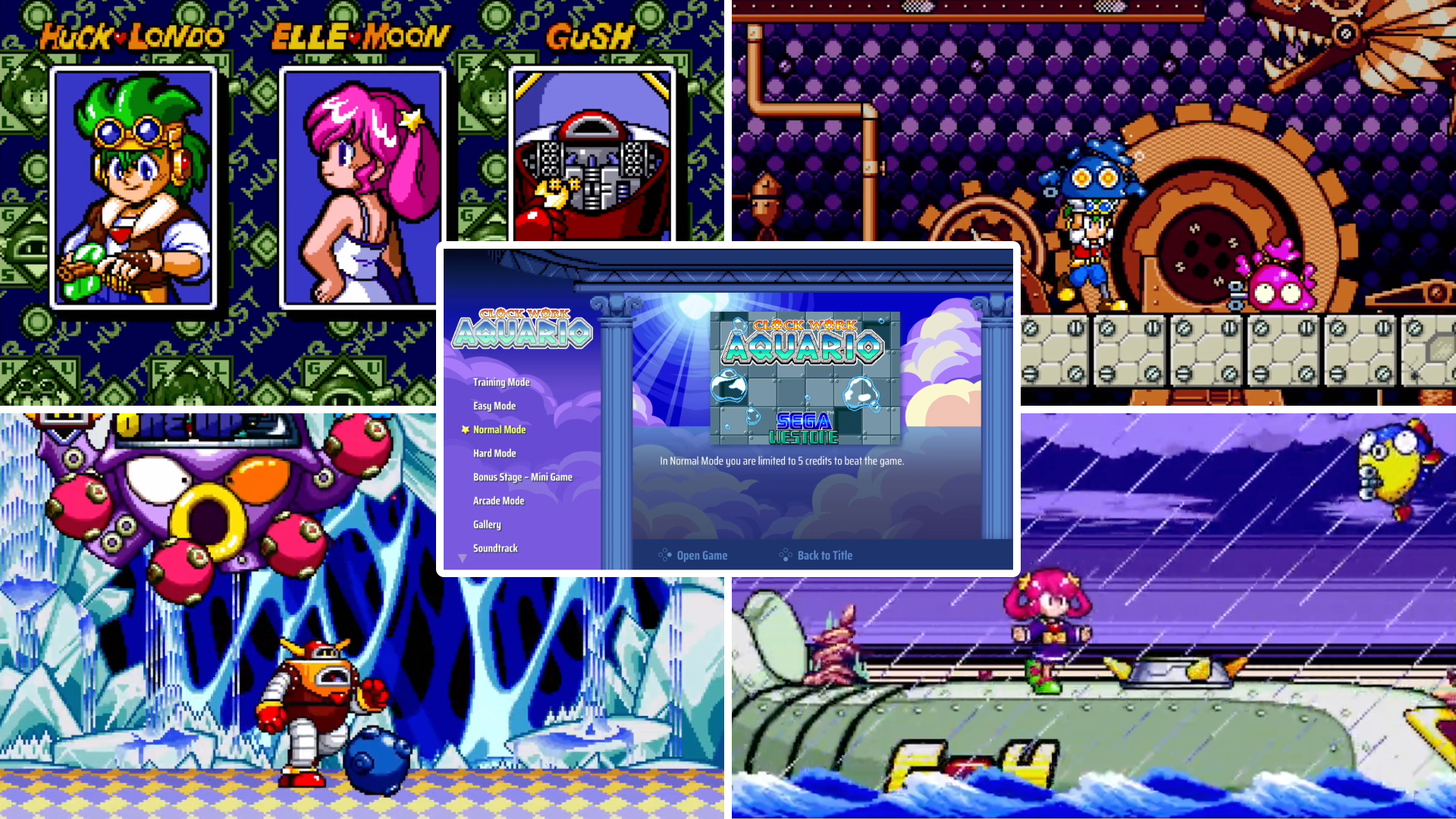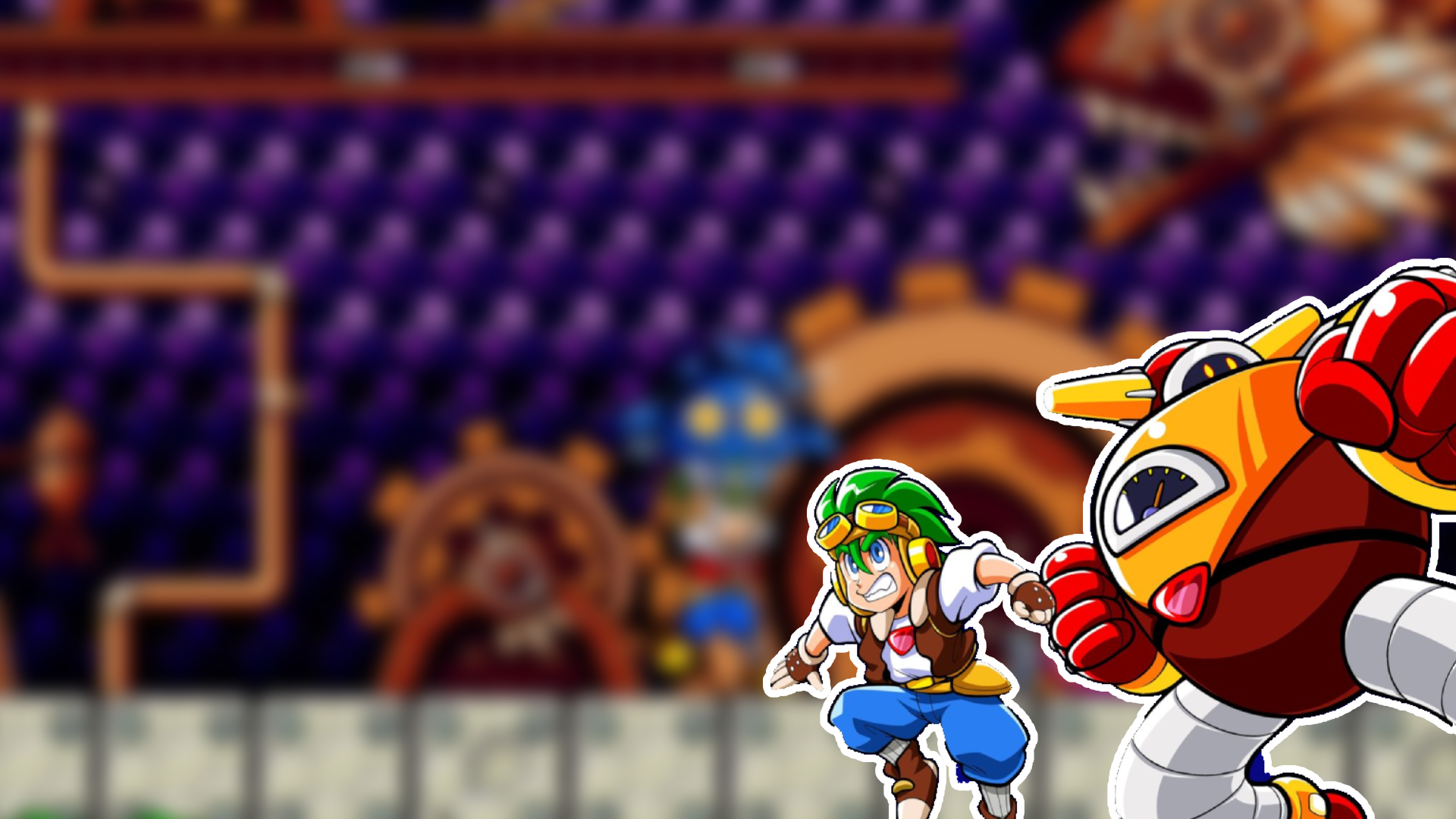The Wonder Boy team's long-lost magnum opus.

As the developer behind the Wonder Boy/Monster World series, Japanese studio Westone maintained a very close partnership with publisher Sega until its bankruptcy in 2014, though one particular title's handling on Sega's part may have tested that goodwill.
That game in question is Clockwork Aquario, which Westone developed in 1992 as a grand farewell to its arcade legacy, pushing the hardware to its limits, only for that farewell to arrive years after the studio had closed its doors.
The Ultimate Iteration
Clockwork Aquario was developed under the leadership of designer Ryuichi Nishizawa, with programmer Takanori Kurihara and artist Mina Morioka among the core team. Their vision was to create a vibrant, co-operative arcade-platformer using everything the Sega System 18 hardware arcade provided (including large sprites and expressive animation), while building on the team's experience from their previous work for Sega with the Wonder Boy series.
In the game, players may choose one of three characters (Huck Rondo, Elle Moon or the robot Gush) and venture through five levels to stop the villainous Dr. Hangyo and his mechanical minions, either in single player or local co-op. Up to three players at a time where planned, though this was cut to two in development. Each level also contains a sub-boss holding the key needed to access its real boss, which needs to be defeated in order to move on to the next world.
One of the most interesting mechanics in Clockwork Aquario is its "stun-then-throw" system: After stunning an enemy by either jumping or punching it, they can be picked up and thrown into any direction, which is central to chaining combos and gaining power-ups. The game uses a two-hit life system similar to Ghosts 'n Goblins in the sense that, after the first hit, the character's clothes get tattered, with the second hit resulting in losing a life.
Bad And Good Timing

While all these mechanics in combination certainly made the title stand out, the arcade market was rapidly shifting toward 3D graphics and fighting games, leading the publisher to assume that were was little public interest in the title. This notion would be confirmed in pre-release location tests, where Clockwork Aquario was comparatively poorly received.
After the cancellation, the developer Westone Bit Entertainment gradually withdrew from the arcade business and increasingly focused on console game development, leveraging its prior console experience. The studio continued working on titles like those in the Wonder Boy/Monster World lineage and other console projects, rather than further arcade cabinets.
However, following the retro boom of the 2010s, platforming fans didn't want to miss out on this unique and nearly fully-finished project any longer, repeatedly requesting its release and inspiring both original creator Ryuichi Nishizawa and preservation-minded publishers like Strictly Limited Games to restore it. They did so in 2021 via a port to PS4 and Switch, which – according to some – marked the longest time between the start of a video game project and its release.
Successfully Realized Potential
After having the purchased the rights to the game from Sega, the original team had sole ownership of Clockwork Aquario, leaving them to handle its marketing and release on their own. Many reviewers praised its pixel art, vivid presentation and the sheer fact it existed at all, but consistently noted its short runtime, limited depth and high asking price.
Fans of retro and arcade-games in particular responded enthusiastically to the game's resurrection, taking it as a revitalized "hidden gem" instead of another indie platformer. The modern release also came with some optional quality-of-life features and bonus material, just like similar later projects.
Meanwhile, the team behind its revival, Strictly Limited Games and its sister label ININ Games, have continued to pursue other niche and historical titles, while the core staff and original creators from Westone Bit Entertainment remain involved as consultants or collaborators, reflecting a continuing partnership between the retro IP holders and boutique publisher.


































